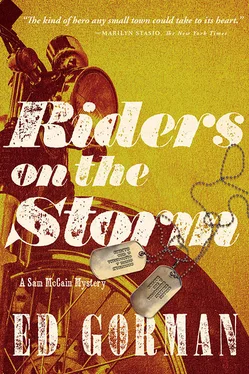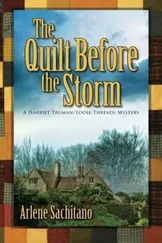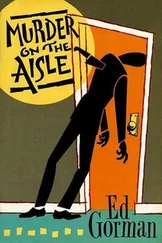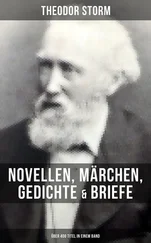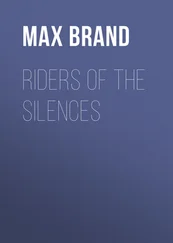By now I and five other men had surrounded Donovan and forced him to stop throwing punches. His entire body surged with his fury. He screamed over and over that he wanted to kill Will.
Many women and more than a few men watched all this in fear and revulsion.
Donovan got his shirt torn in the process of the manhandling it took to hold him back. He raved on. He’d never been like this before the war; not this kind of lunacy. I would’ve heard about it.
Slowly, reason came back into his eyes. Not apology or shame but common sense. He gaped around as if he’d just been dropped here from another planet. You could see him begin to recognize not only faces but context. Maybe he wasn’t sorry for what he’d done to Will but it was easy to see that he was embarrassed about it.
O’Shay was at the bar. I’d glimpsed him earlier flirting with the woman running it. Not flirting this time. When he got his drink he gunned it in a gulp and then held the glass out for a refill.
No doubt his people had vetted Donovan and no doubt they’d learned of his temper and no doubt they’d weighed that temper against his points as a businessman and Nam vet. But temper in the abstract is not the same as stories witnessed in real time.
O’Shay was in a dilemma. His people could minimize this with the press. Area reporters would not be eager to take on a war vet, particularly one who was also a prominent businessman. Maybe he could slide by this whole night. But what about the future?
I knelt next to Will. A woman who identified herself as a nurse joined me. She checked his vitals — not what they should be — and then checked his nose — not broken — and then she said the best thing would be to get him to an ER. He’d been savagely beaten.
His eyes fluttered open and he said, “I kicked his ass, huh?” He loved jokes. But then, his mood swings worse than mine, he started crying. The nurse took one arm and I took the other and we gradually got him sitting up.
A large number of people encircled us. Even a few vets I recognized as friends of Donovan were saying sympathetic things. Maybe Donovan wasn’t such a hero to them anymore.
Just after I stood up a large sinewy hand fell on my shoulder. When I turned around I looked into the wary green eyes of O’Shay.
“I’m very sorry about this.”
“I’m sure you are. He’s one hell of a candidate.”
“War vets are often stressed to the point of anger. I’m sure someone in the VA can deal with his anger problem.”
Right now O’Shay was doing his own public relations. I couldn’t dispute that Donovan was a brave man. He had the medals to prove it.
“I need to get Will to the hospital.”
“We’re here to help you,” a vet I recognized from Iowa City said. “We’ll help you get him in your car and we’ll follow you all the way to the ER.”
But O’Shay wasn’t quite finished. “Someone pointed you out to me. Told me what happened at boot camp. I’m very sorry. If there’s anything I can ever do for you, please let me know.”
This guy could kiss your ass under water.
He turned away. He had a lot of work to do. He had to sell this crowd on what a great guy his seriously disturbed Congressional candidate really was.
Right now that was going to be one hell of a job.
We were talking about shunning.
There was an Amish community not too far from here and one of its rare but controversial practices was to shun a member who had violated certain beliefs or rules of the sect. They pretend the shunned person does not exist.
So Karen and I sat in the ER waiting area and smoked our cigarettes and kept glancing at the large round clock above the ER desk. As if checking it would hurry the intern who was examining Will. Karen had called a neighbor, who was now watching Peggy Ann.
On the way over here Karen had told me about some threatening letters that had been sent to their house over the last three months. Each looked like a kidnap note and each hinted at an ominous future. These really needed to be looked into.
She’d also told me about other letters. “About a month ago I was cleaning his den and I found this shoebox on the shelf of the closet. It was pushed way back. I couldn’t help myself. I took it down and opened it. There were all these love letters he’d written and never sent. Longhand, the tiny way he writes. He’s been seeing Cathy Vance again.” No tears; dead cold voice.
Cathy Vance was the college sweetheart he’d been engaged to, but he’d thrown her over when he met Karen.
Then we were in the Emergency Room.
Tart smells of medicine, hospital sounds including whispery calls over the intercom now that most of the patients would be sleeping or trying to, and the whoosh of the double ER doors as people passed in and out. I’d dated an ER nurse for a time and learned some things about the department. It was the Wild West. You never knew who or what you were going to get. One night a man with a gun had confronted her, demanding to see his estranged wife whom he’d just beaten half to death. Fortunately, in his rage and rush he hadn’t noticed the police officer behind him. The officer had just brought in a drunk who’d fallen and cut his head. The officer now walked up behind the crazed husband and managed to take away the man’s gun without incident.
“He used that word ‘shunned’ more than a few times in the past few days,” Karen said. “You know he can be pretty dramatic sometimes but I know that’s how he was feeling. Being in the army made him feel accepted as a man. He was afraid to go but I always sensed he thought he could prove something to himself over there. I don’t think he ever felt adequate about being tough. God, I love him so much. I tried to warn him that this would happen if he signed that petition. Look what’s going on in Washington.”
A small faction of the anti-war vets (whose large numbers were being disputed by some in the press) had clashed at a demonstration with regular vets near the White House the other day. All the expected name-calling and bitterness. A particularly sad day for the country, I thought. A feast for the blowhards in Congress who loved to pout over alleged heresy.
“Then when he left tonight for the party—”
“He just said that he needed to buy oil, so—”
I smiled. “Oh, right. He learned how to change oil when he was over in Nam—”
“So he worked on his car whenever he could. It was another thing that made him feel good about himself.”
A heavyset middle-aged Negro came in with his wife. She pointed to a chair and said, “Sit there, Bob. I’ll get you all checked in.” He wore a Cubs T-shirt and jeans. The way he gritted his teeth and held his right arm as if it was an infant suggested that he had broken it.
“He’s in this softball league at work and he tried to slide into second base earlier tonight,” she told the woman at the desk. She glanced back at him. “He thinks he’s still sixteen, I guess. Anyway, we went home after the game but the pain’s getting worse and worse.”
The man had smiled at her when she’d said he thought he was still sixteen. He knew she’d been telling him that she loved him.
Our doc came along just as the woman was taking a seat next to her husband.
Will looked stronger and more purposeful than I’d expected he would. He’d been in the examination room for nearly an hour.
The intern was short, wiry, and balding. He had an O’Shay smile. He was going to send Will and Karen home happy. Maybe he’d give Will a sucker.
“The beating looked a lot worse than it actually was, Mrs. Cullen. There’s no concussion, no fractures, just a whole lot of bruising. Warm baths will help that.” He spoke to her as if Will was her child and not her husband.
Читать дальше
